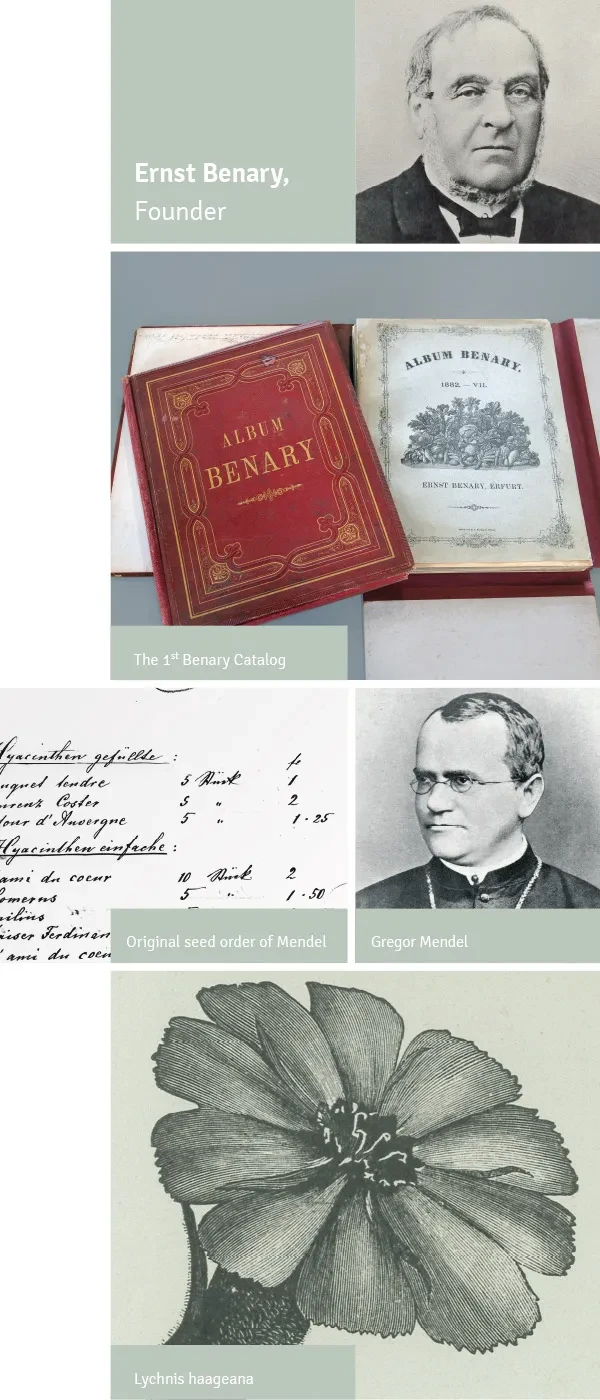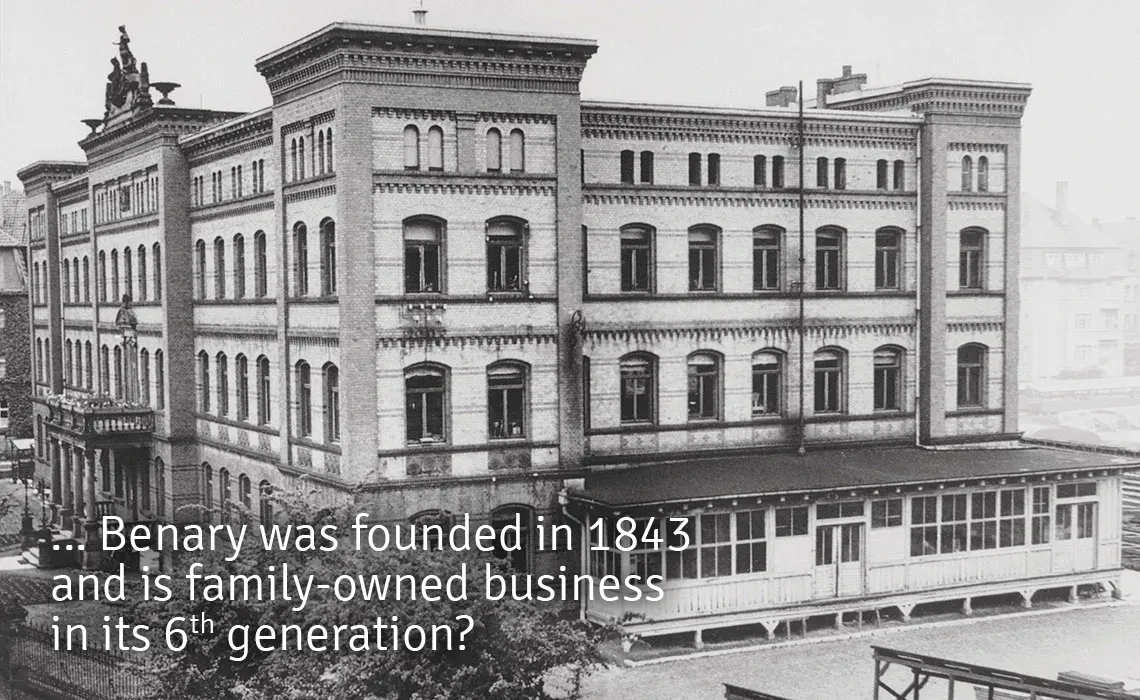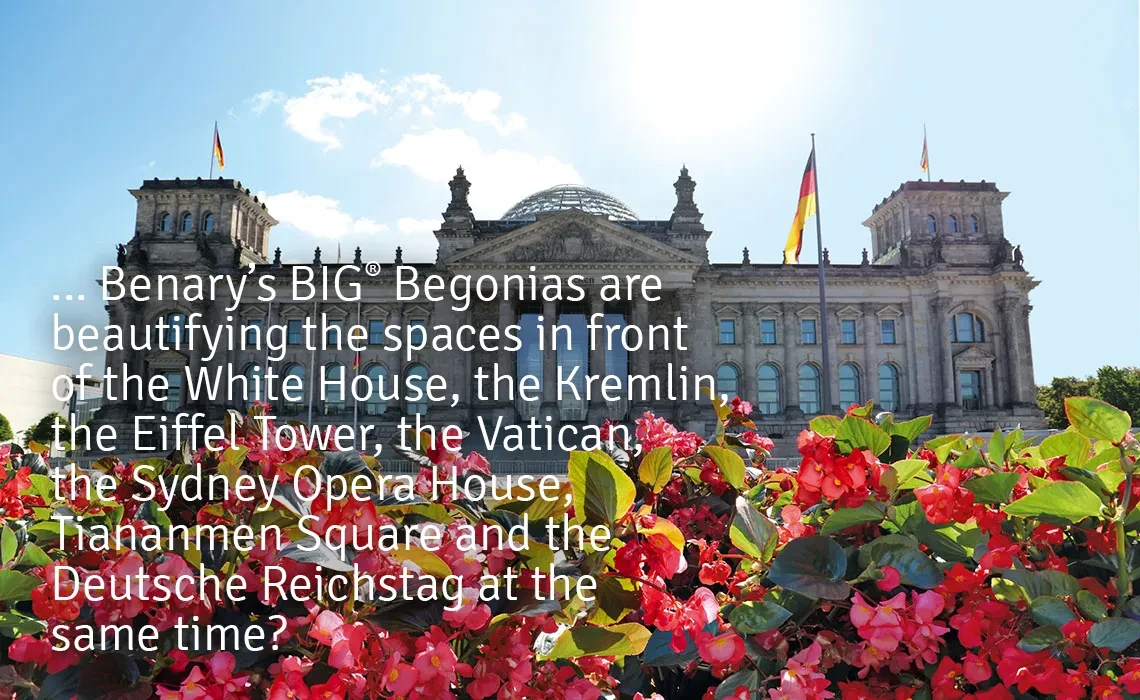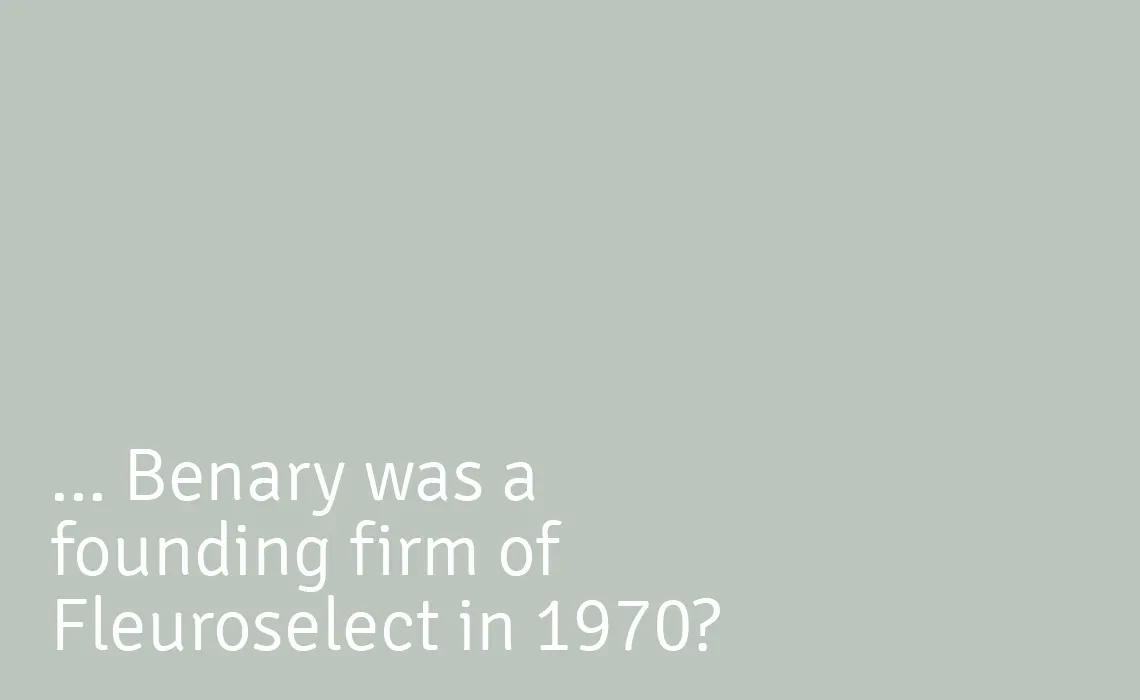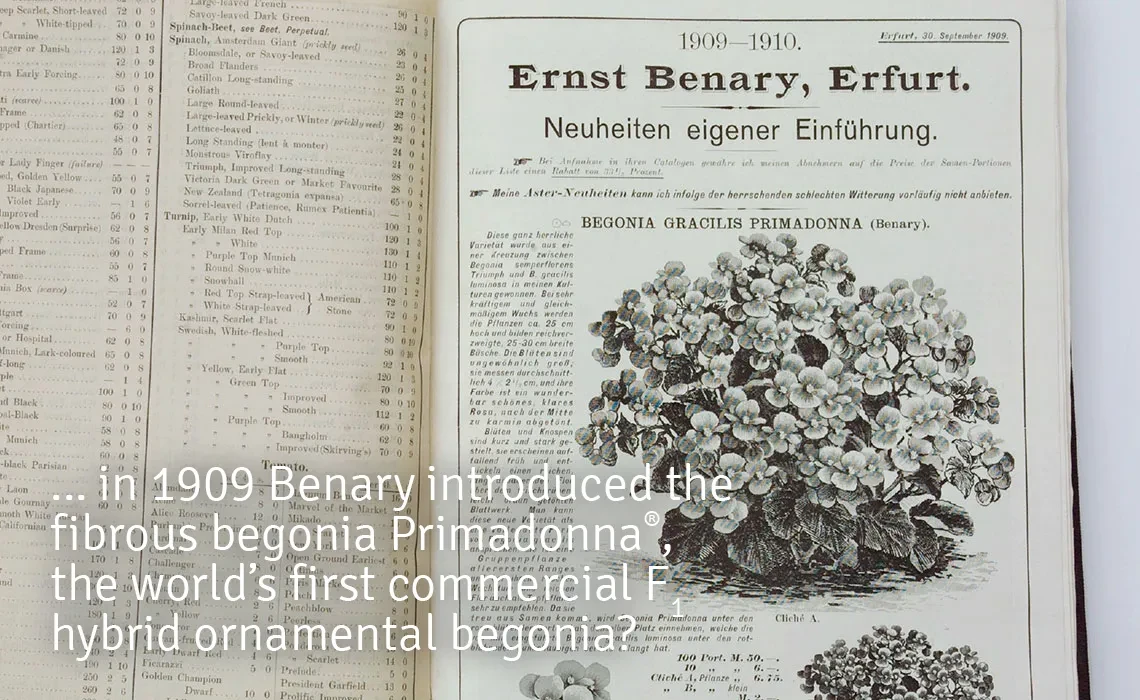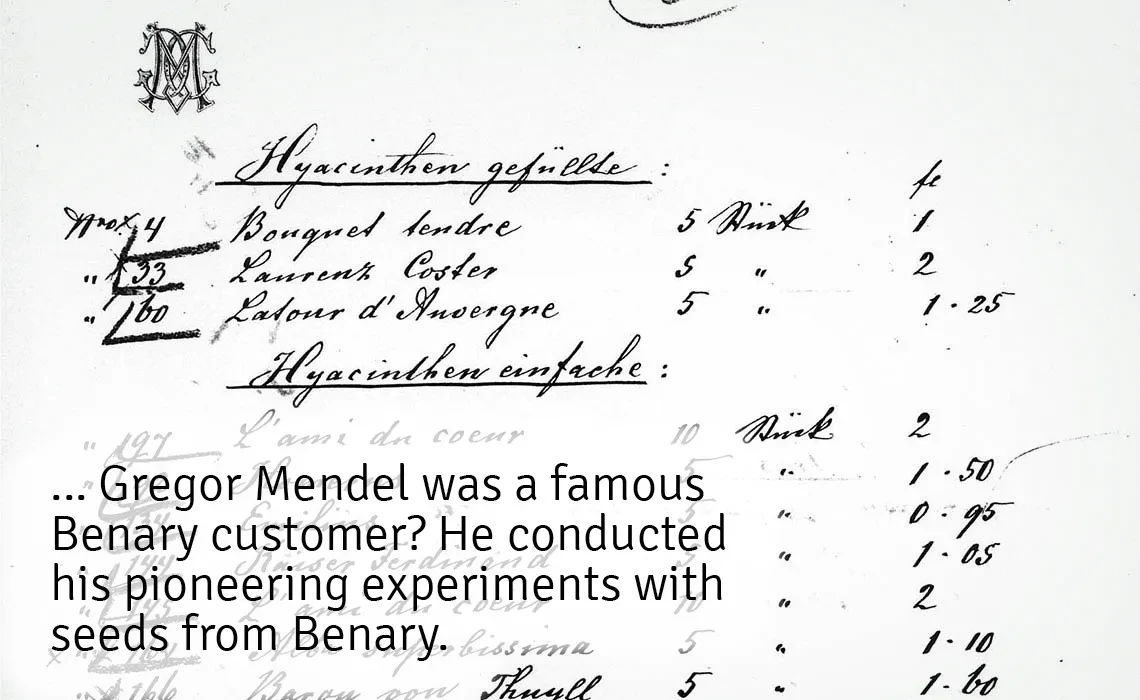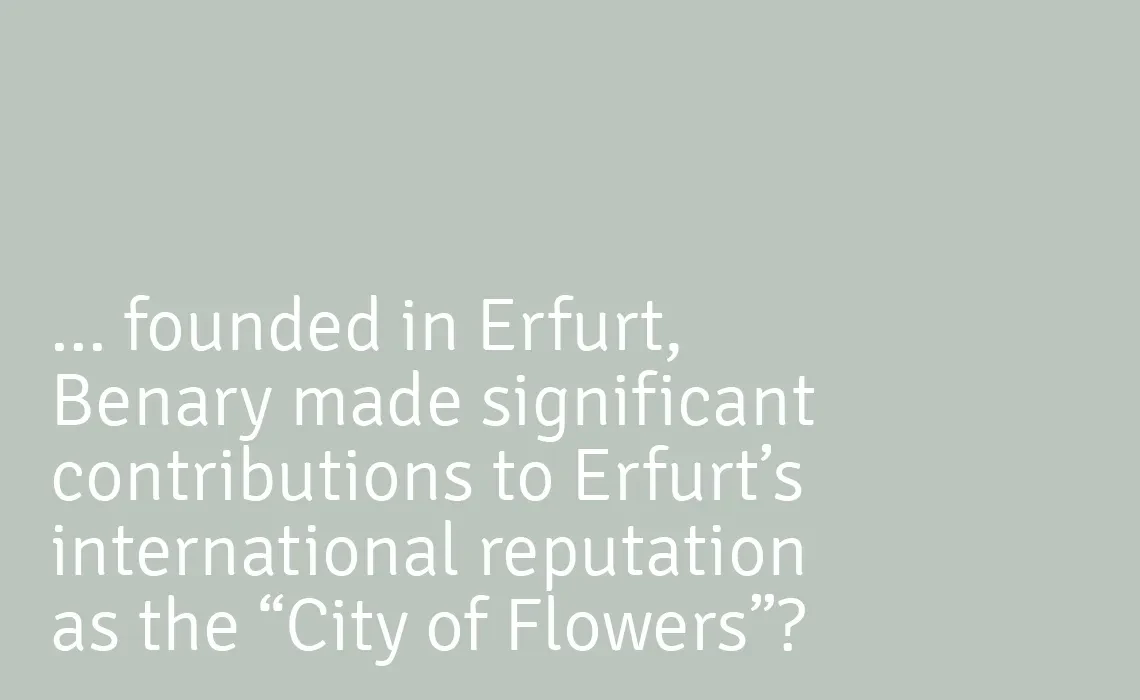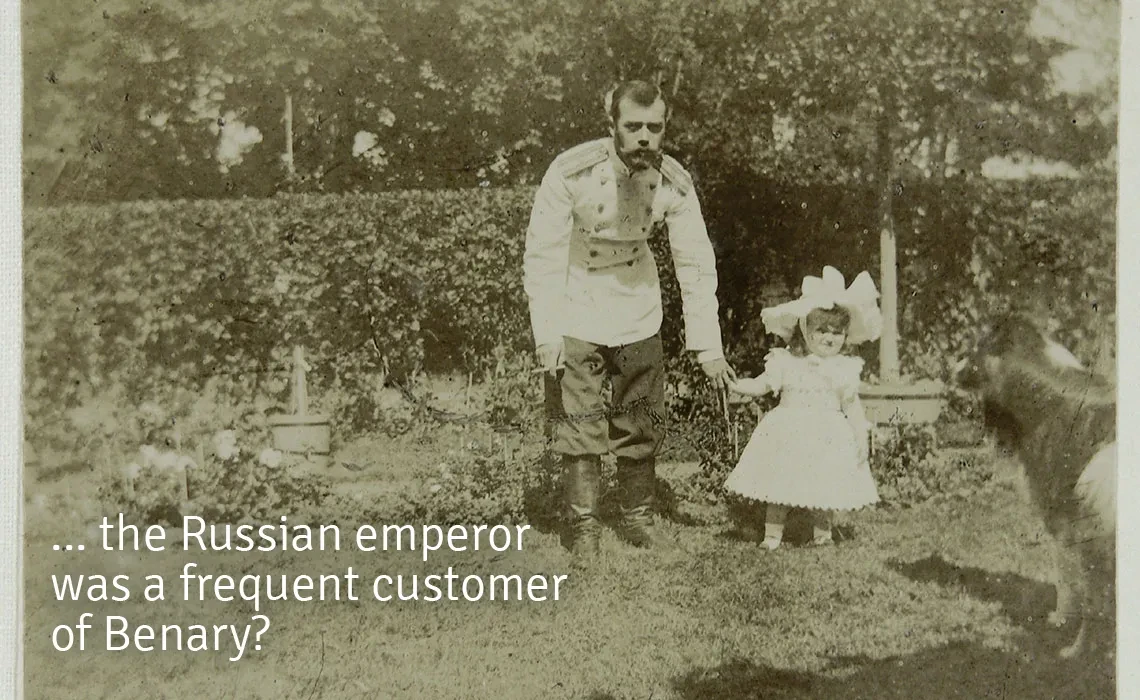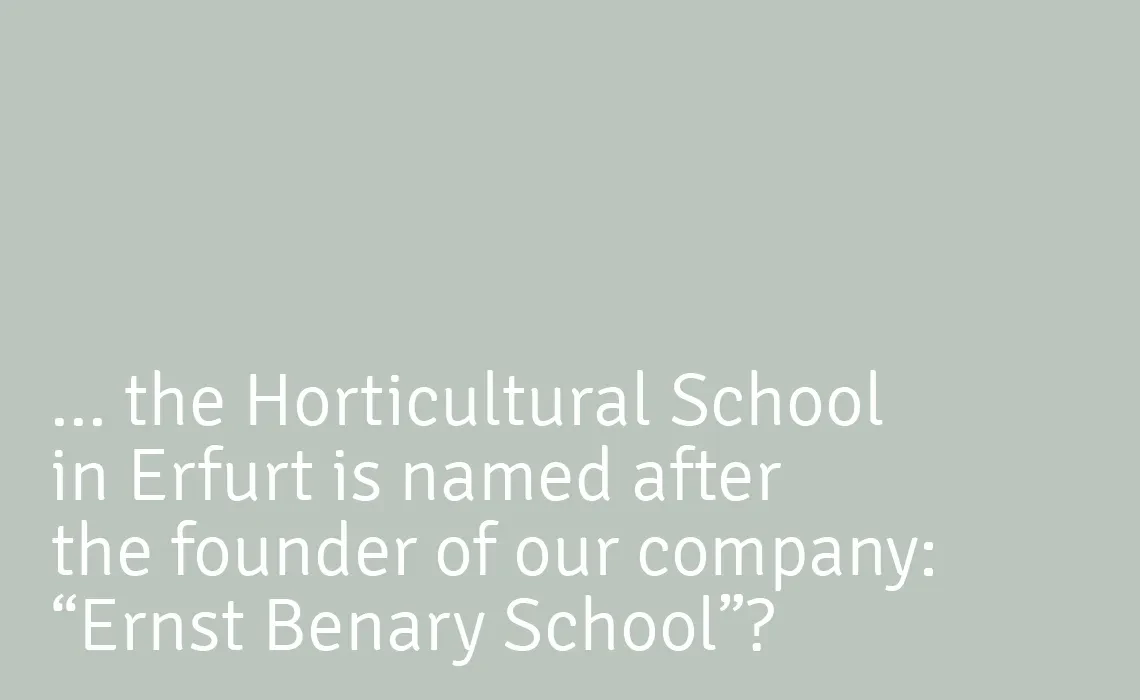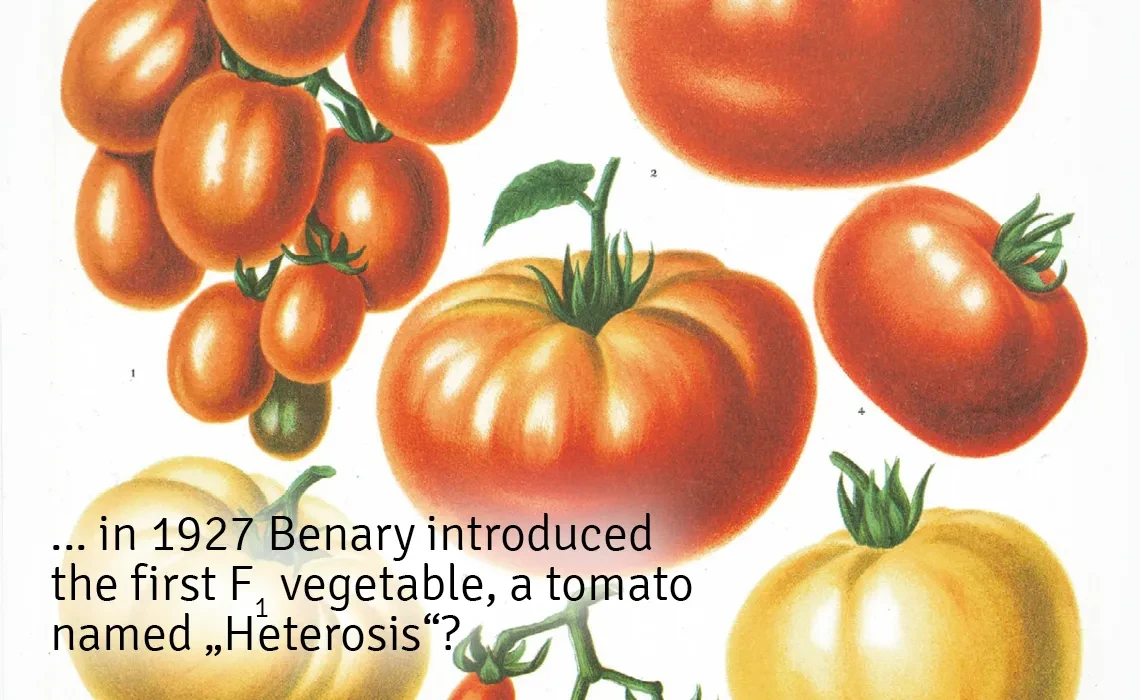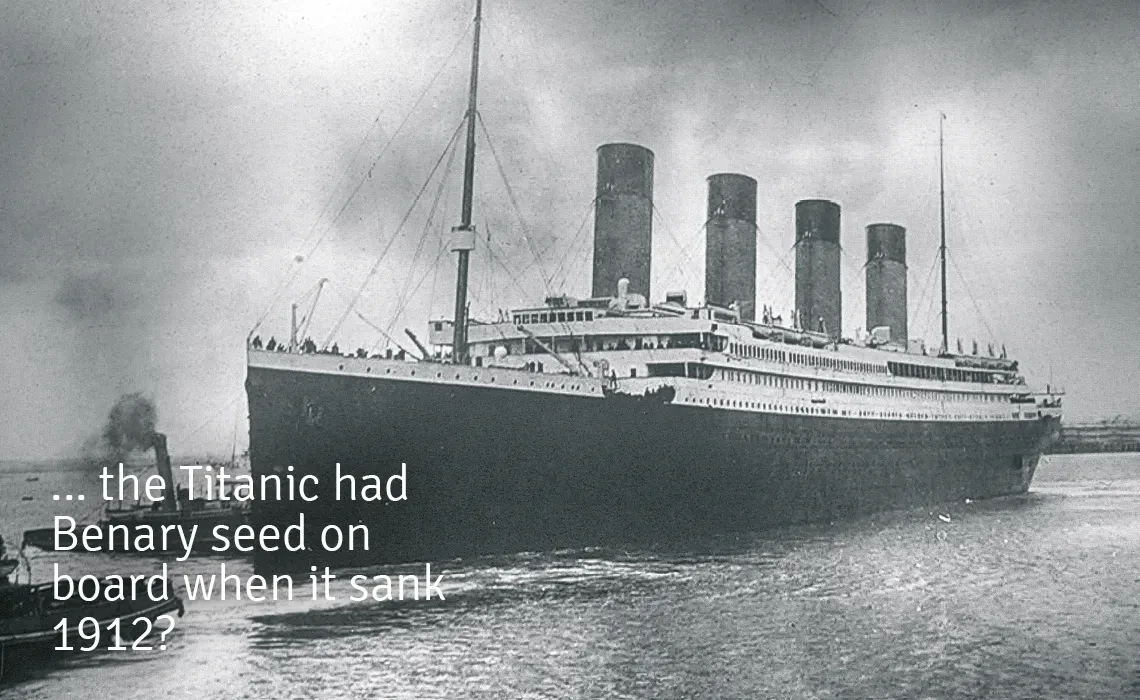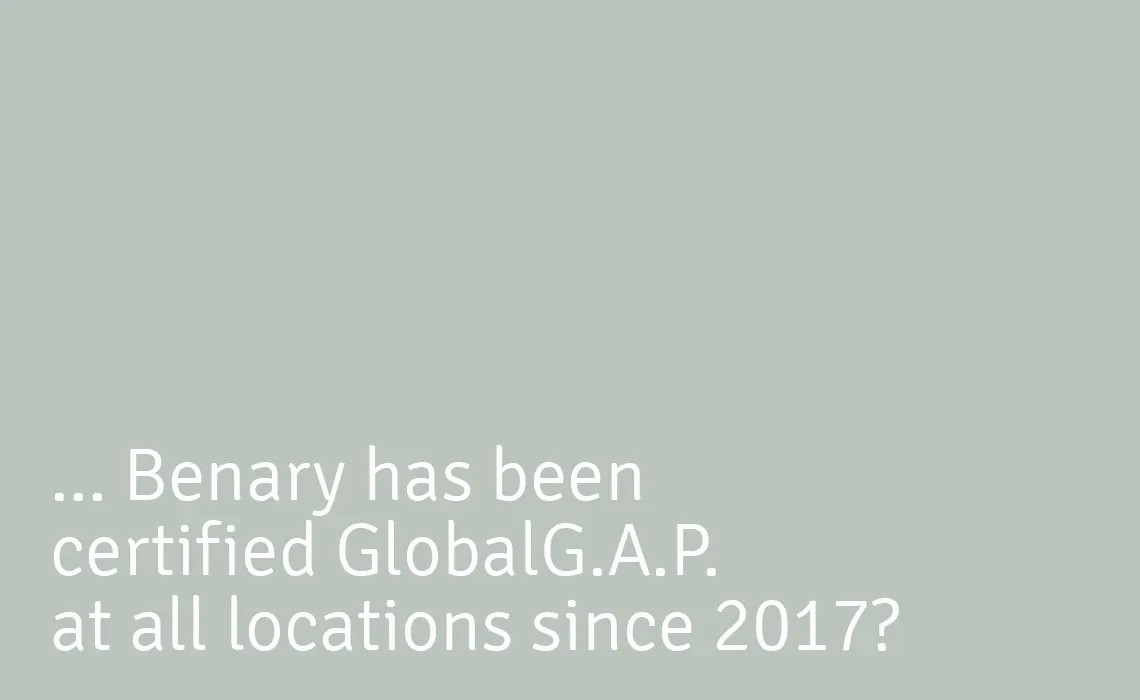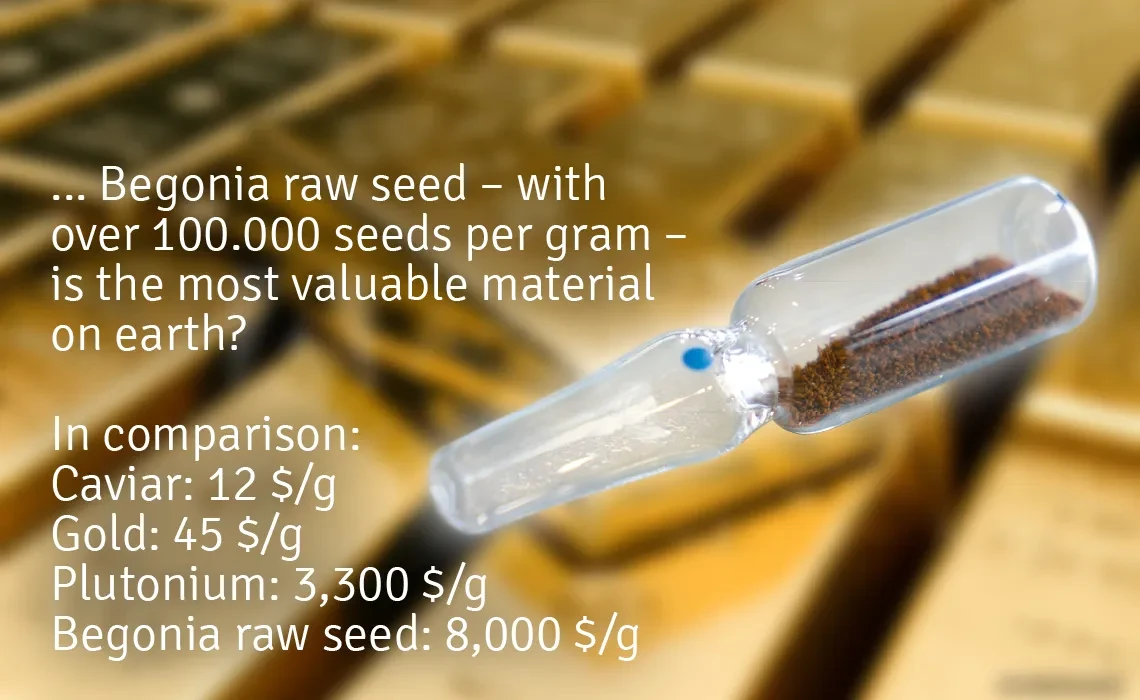Tradition is not to worship the ashes
but to keep the fire burning
In 1946, after World War II, our company was disowned and lost everything. So Fritz Benary rode his bicycle through Europe to collect seeds to restart the company. This is just one example of our company's determination and courage. Interested in learning more? Click through each generation below.
2024
Total focus on seed: Streamlining of all activities towards seed raised varieties
2022
Family buyout of Ernst Günter Benary. Klaudia Benary-Redlefsen takes over 100% of the company shares
2021
Foundation of "Tang Chao" (Xiamen, China), an 18 hectares fully-integrated florticultural industry park, including a new Benary breeding station for the hot and humid climate
After 24 years with the company, Nick ten Pas retires as Managing Director
2018
Carving out of the research laboratory into XCellent Lab GmbH & Co. KG, offering new breeding technologies and lab support to third party customers
Inauguration of the new production facility “Benary Chile Ltd.“ in Hijuelas, Chile
2017
Launch of Benary+ Inc., a direct sales company to growers in North America
2016
Foundation of “Jinpin Flower Seedling“, a young plant production and distribution joint venture in Chengdu, China
2011
Start of the seed production facility in Guatemala
Launch of a new breeding facility in Watsonville, California
2010
Foundation of the breeding facility “Benary Netherlands B.V.“ in Venhuizen in the Netherlands
2009
Acquisition of Bodger Seeds Ltd., Lompoc, California
2008
Introduction of Begonia x benariensis BIG, the extraordinary result of more than 100 years of begonia breeding
2007 to 2011
Reorganization of the company: Closing of locations in Wahlhausen, Azores, Neu-Eichenberg and Kittsee
2006
Nick ten Pas and Matthias Redlefsen step into the management of the company. Klaudia Benary-Redlefsen takes over the majority of shares
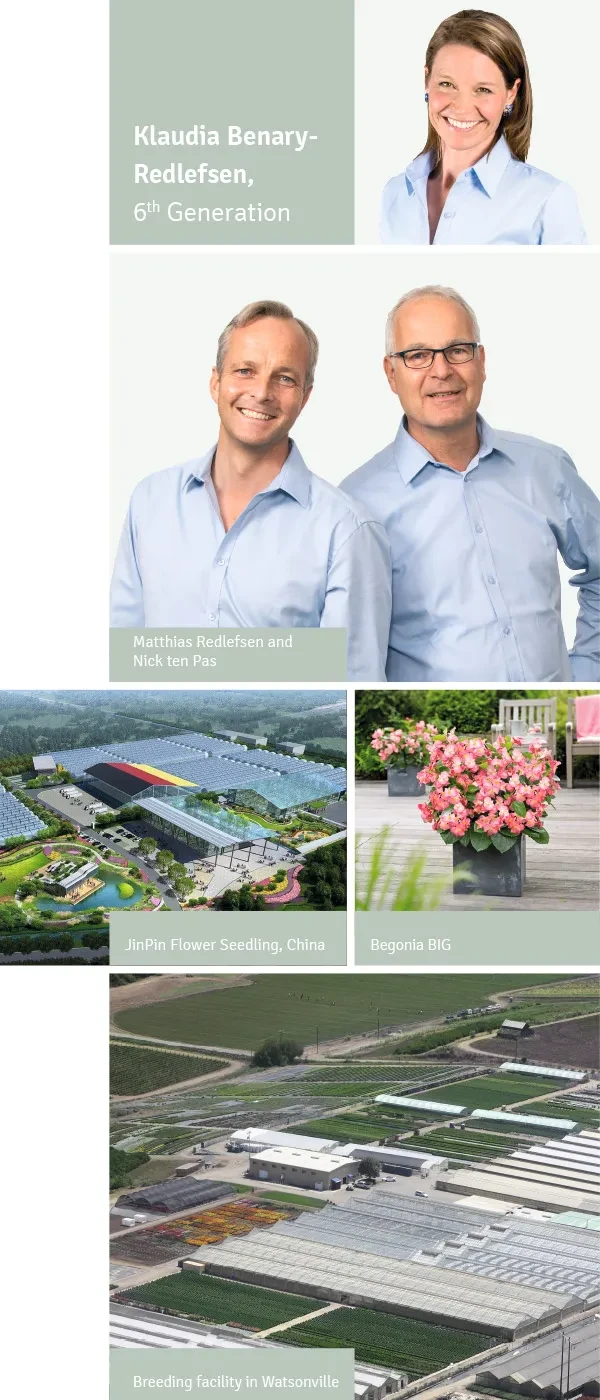
2005
Expansion of the greenhouse facility in Hann. Münden
2002
Launch of Benary’s FastraX Program, offering first year flowering perennials to the professional grower
1997
Systematic internationalization of the seed production
1996
Inauguration of the new main office building in Hann. Münden
1994
Foundation of the US sales and distribution subsidiary “Ernst Benary of America Inc.“
Ernst Günter Benary and Christian Börries take over the management of the company. After more than 150 years for the first time an external manager steps into the top management of Benary.
The managing directors are supported by a supervisory board (founded in 1980), including Klaus Thimm (Fritz Benary’s son-in-law) and later Katrin Benary-Thimm (daughter of Fritz Benary).
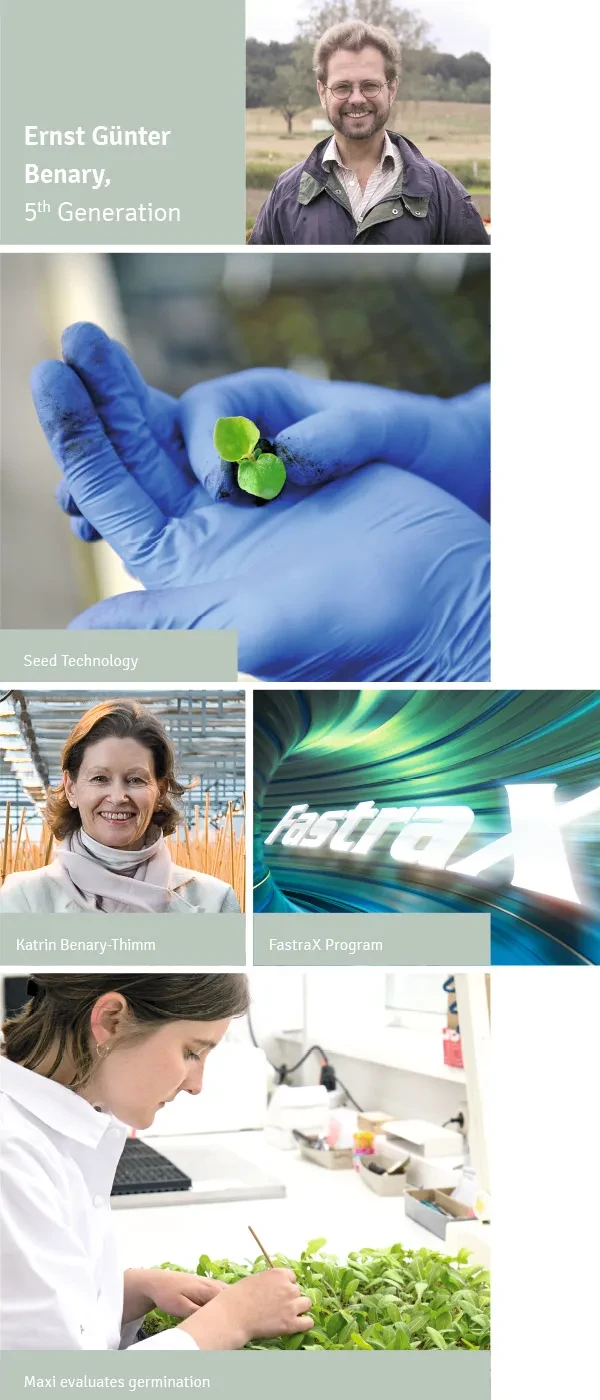
1991
After the German reunification, foundation of a new breeding and production facility in Wahlhausen, East Germany
1990
Introduction of the first Pentas lanceolata from seed: "New Look®"
1988
Foundation of a new production location on the Azores
1979
After the sudden death of Fritz Benary his brother Rudolf Benary takes over the management of the company
1974
Introduction of the world’s first orange pansy: "Tangerine"
1972
Introduction of the first F1 begonia tuberhybrida from seed: Nonstop® Begonias are born
1964
Foundation of the breeding and production facility in Kittsee, Austria
1959
Launch of Benary’s “Blue Point Seed“, giving the seeds a clear distinction. The blue point in Benary’s logo still refers to this distinction
1958
Abandonment of the vegetable breeding and complete focus on flowers
1949
Fritz Benary travels through Europe (by bike!) to establish new business contacts and to collect seeds for his breeding
1948
The monetary reform and the introduction of the D-Mark presents an existential challenge to the start-up company: Contract production, already fixed in 1947 now suddenly is 10 times more expensive. The company only survives due to a government loan
1947
Start-up of a new production facility in Neu-Eichenberg, West Germany
1946
Friedrich (Fritz) Benary II flees to the West of Germany and founds "Ernst Benary Samenzucht GmbH" in Hann. Münden
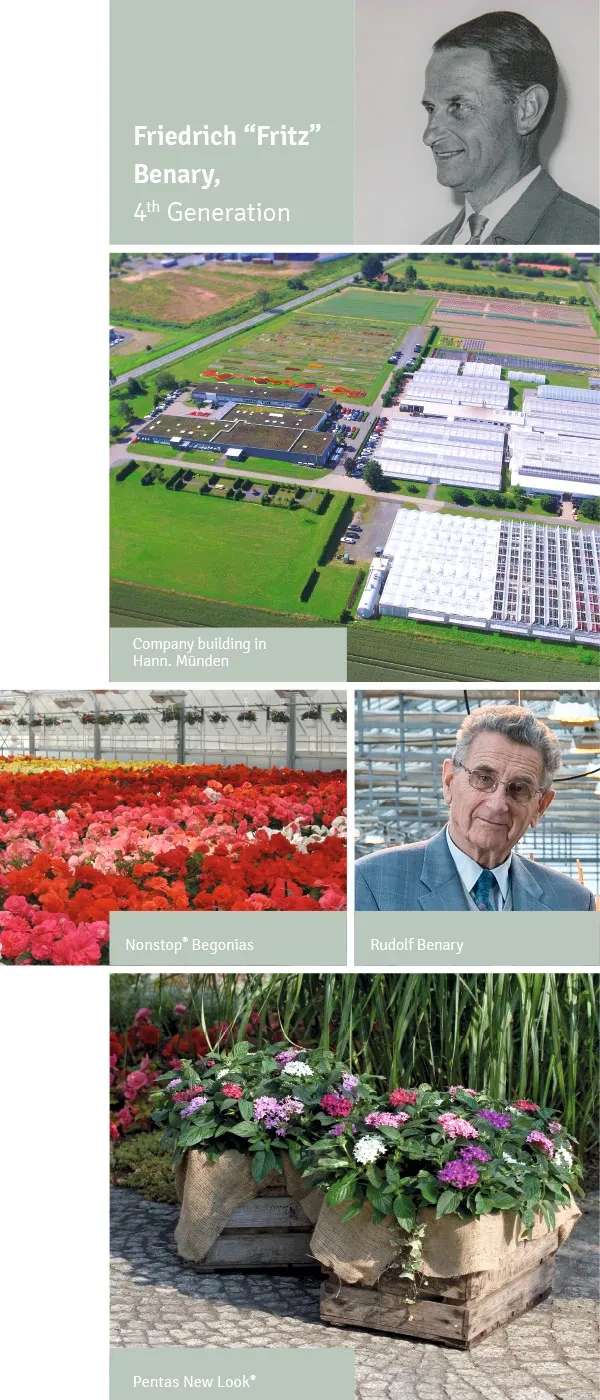
1952
Ernst Benary KG in Erfurt with a staff of over 280 is expropriated by the German Socialist government
1936
To avoid prosecution by the Nazis due to the Jewish roots of the family, many members of the family and the company sign up for the German Army "Wehrmacht" and never return from World War II.
1934
Introduction of the world’s first triploid hybrid: Fibrous Begonia „Tausendschön“
1927
Introduction of the world’s first F1-hybrid vegetable, the Tomato „Heterosis“
1925
Inauguration of the „Rose Benary Holiday Camp“ for staff and their families in Friedrichroda
1920
Establishment of a pension fund for widows, orphans and veterans of the Benary staff
1918
Benary loses most of its exports and many valuable employees during World War I.
1914
With the beginning of World War I Benary is forced to focus its activities to vegetable seed production
1909
Ernst Benary II and Heinrich Benary enter the business
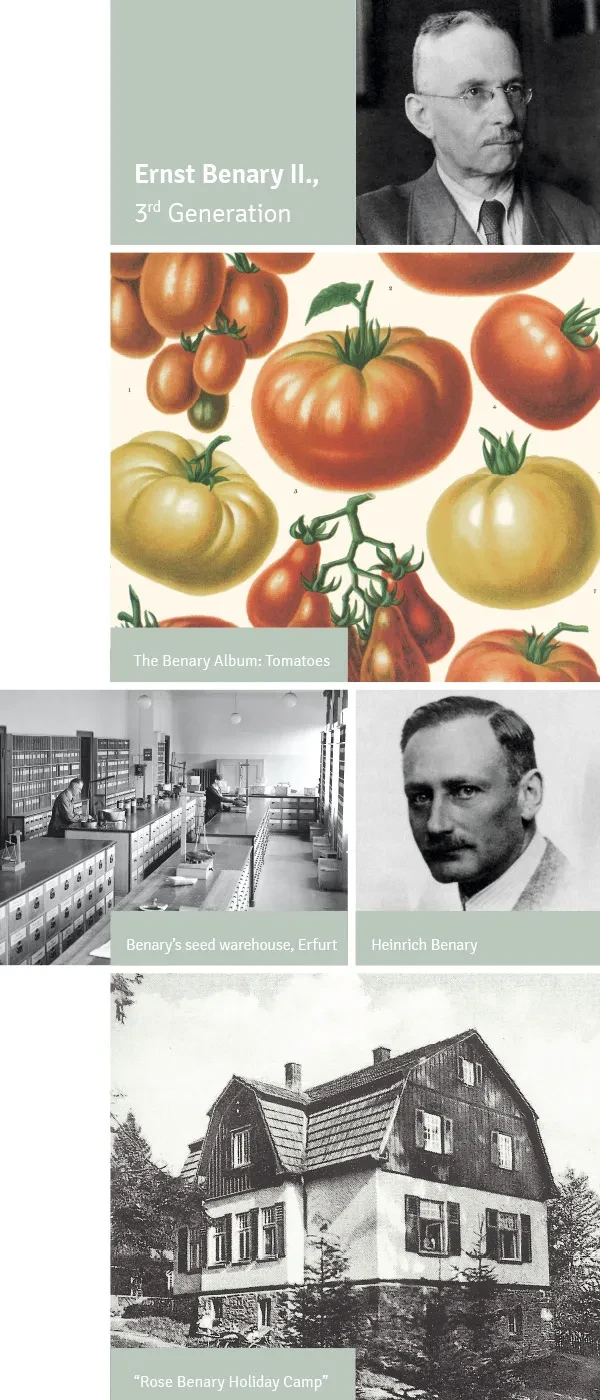
1912
Benary employs over 200 permanent workers, cultivates over 50 hectares of greenhouse and field production. The total turnover accumulates to 2,4 Mio. Reichsmark. The export quota exceeds 50%
1910
The Russian Emperor is a frequent customer for his Royal Garden in St. Petersburg
1909
Introduction of the world’s first commercial F1-hybrid ornamental: Begonia Primadonna®
1890
Rapid expansion of the business and internationalization of the seed production
1880
Friedrich I and John Benary join the company
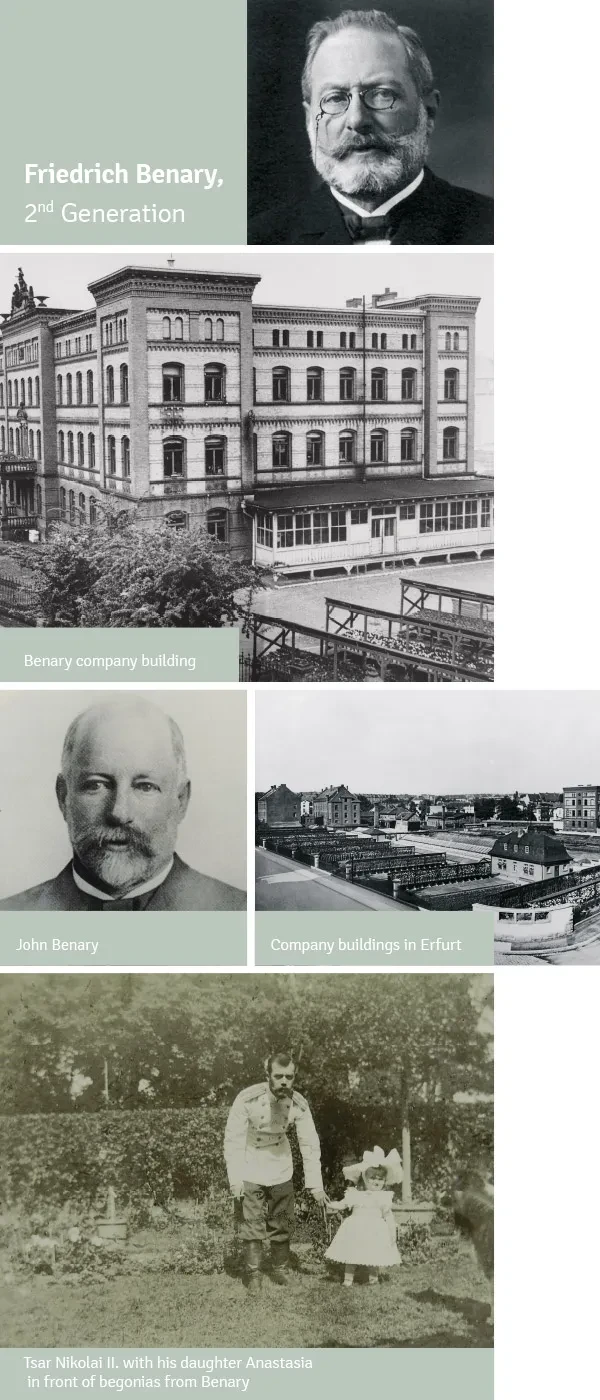
1889
Vist of the German Emperor and award of the 1stClass Knight Cross to Ernst Benary
1873
Gregor Mendel is a prominent academic customer
1859
Introduction of Lychnis haageana, the company’s first own breeding
1846
With support of his family, Ernst Benary acquires his first plot of land
1845
The first catalogue in English, Russian and French is published
1843
In a rented apartment in Erfurt, Ernst Benary, born in Kassel 1819, completes his apprenticeship in horticulture and extensive international travel and starts his own company: „Ernst Benary Samenzucht für Gartensamen und Pflanzen“
